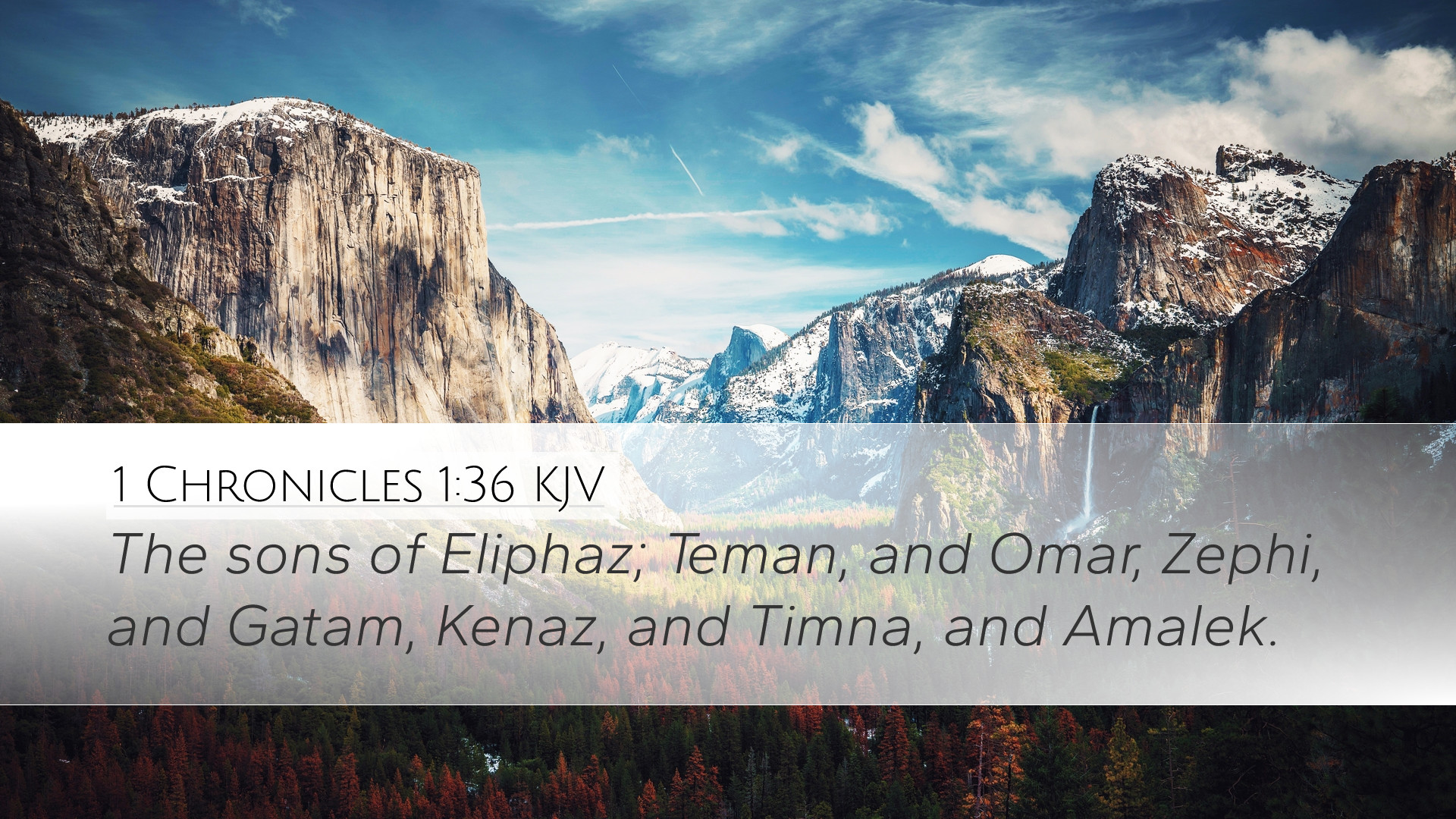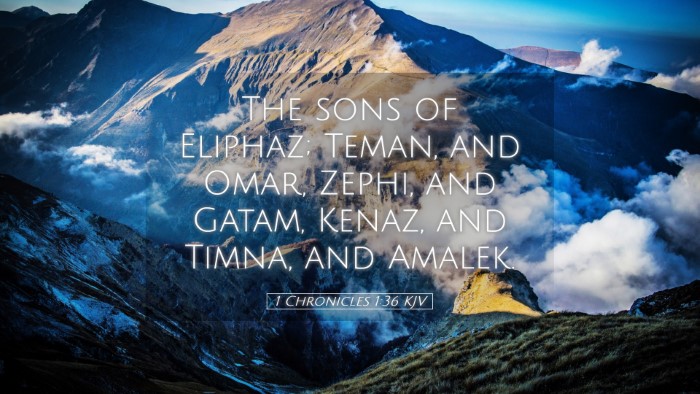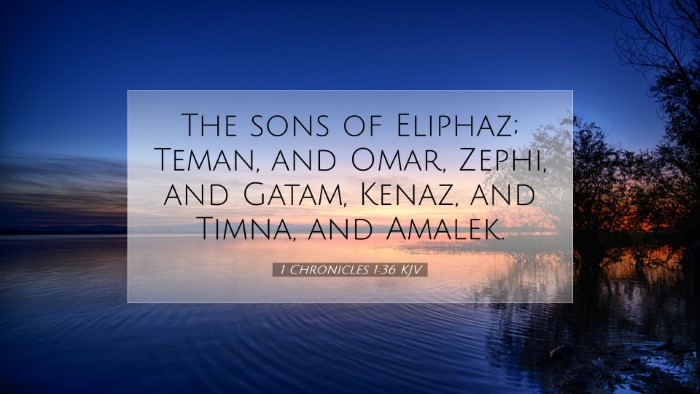Bible Commentary on 1 Chronicles 1:36
Verse: "The sons of Eliphaz were Teman, Omar, Zepho, and Gatam, and Kenaz; and Timna was the concubine of Eliphaz, the son of Esau, and she bore to Eliphaz Amalek." (1 Chronicles 1:36)
Introduction
The genealogical records in 1 Chronicles serve to establish the lineage and heritage of the Israelites, particularly the descendants of Abraham, Isaac, and Jacob. This specific verse details the descendants of Esau through Eliphaz, indicating the significance of family lineage in ancient Israelite culture and theology. Scholars such as Matthew Henry, Albert Barnes, and Adam Clarke have extensively commented on this passage, providing insights into the cultural, historical, and theological implications.
Contextual Analysis
1 Chronicles presents a genealogical account aimed at affirming the legitimacy and continuity of Israel's heritage. Understanding the context of Esau's lineage is vital as it highlights the intertwining of familial relationships and the broader narrative of God's covenant with Israel. Esau, a significant figure as the brother of Jacob, plays a pivotal role in the narrative of the chosen people.
Commentary Insights
-
Matthew Henry's Commentary
Henry emphasizes the importance of Eliphaz as a central figure in Esau's lineage. He notes that the sons listed demonstrate the diversification of Esau's family, particularly how they contribute to the Edomite nation. The mention of Timna as a concubine underscores societal norms of that time and highlights the complexities of family structures in the ancient Near East.
-
Albert Barnes' Notes
Barnes elaborates on the names mentioned, connecting them to historical figures and places. Teman, one of Eliphaz’s sons, is linked with the region known for wisdom (Jeremiah 49:7). He points out that Amalek, mentioned as the son of Eliphaz and Timna, is significant due to the Amalekites’ pivotal role as adversaries of Israel throughout its history. This linkage serves to foreshadow the conflicts that arise between Israel and the descendants of Esau.
-
Adam Clarke's Commentary
Clarke discusses the implications of Timna's role as a concubine, indicating the social and cultural practices of the time. He points out that Timna's inclusion highlights the intersection of various social statuses within the family dynamic, which reflects the broader community structures of the ancient Israelites. His analysis reveals that these records were intended to honor all branches of the family, even those born out of traditional marriage.
Theological Implications
The genealogies in 1 Chronicles, especially this verse, are not merely historical records but serve profound theological purposes. They highlight the sovereignty of God in the unfolding of history, demonstrating how His plans incorporate even those who were rivals to Israel. The conflict between the descendants of Jacob and Esau, represented here by the Edomites, serves as a backdrop to understanding the complexities of God's chosen people.
Familial and Cultural Insights
This verse also reflects the importance of familial relationships in ancient Jewish culture. The inclusion of concubines in genealogical accounts suggests the practice was accepted within their societal norms, emphasizing the tangible realities of family constructs at the time. The passage underscores that genealogy isn’t merely a record of lineage but also a testament to societal roles and the impact of those roles on the trajectory of history.
Conclusion
1 Chronicles 1:36 offers rich insights into genealogy, cultural practices, and theological implications. It invites readers to reflect on the complexities of God’s plan through history and the interconnectedness of familial lines. As pastors, students, theologians, and scholars engage with this verse, it becomes a reminder of the significance of each individual in God's grand narrative – even those whose legacies are intertwined with opposition and conflict.


